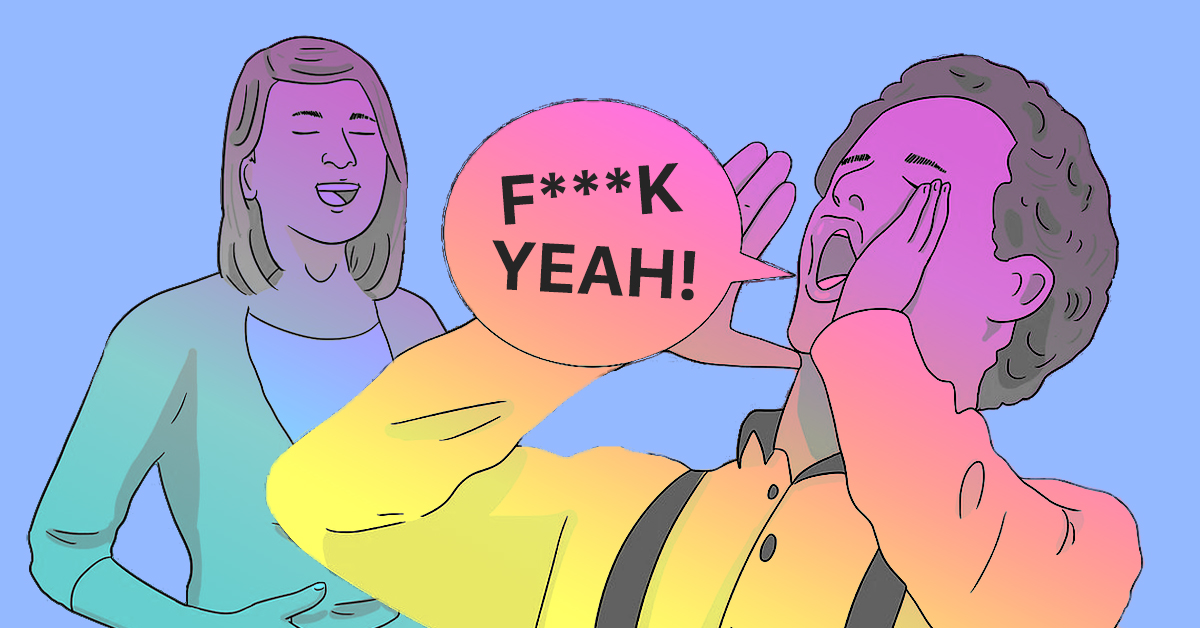Cursing Makes You A Better Friend And 5 Other Benefits Of Swearing Like A Sailor
Lately, I’ve been trying to monitor my use of curse words. My son is rapidly approaching language acquisition, and there is a strong chance he will begin speaking in profanity-laden sentences. But, there’s a part of me that doesn’t really care if he uses a curse word here and there. After all, profanity is a part of language. It has a history in the common record. It’s effective. It’s fun. Also, swearing is good for you.
Recent studies show there might be a connection between how often you curse and how good of a friend you are.

What are some qualities that make a good friend? They’re probably honest with you. Professors from Maastricht University, Hong Kong University of Science and Technology, Stanford University, and the University of Cambridge conducted a study intended to test the correlation between honesty levels and profanity use.
Researchers found there was a positive connection between honesty and profanity use.

(Another study, however, countered these claims, suggesting that the relationship is actually much more complex.)
A good friend is also able to communicate effectively. When we curse, we “not only communicate the meaning of a sentence, but also our emotional response to the meaning,” writes Tiffanie Wen.
And in some situations, cursing allows us to express ourselves without turning to physical violence or destructive behavior. So swearing is actually good for you.

Think of how much better you feel after letting a series of curse words out. You feel calmer, less likely to throw a glass across the room, right?
Speaking of communication skills, using profanity can also contribute to the rhetorical effectiveness of a message.

A cleverly used curse can make the difference when trying to persuade someone to believe you or to participate in their cause.
Someone who recently used profanity to great effect? Megan Rapinoe, who brilliantly announced to the world that she is “not going to the fucking White House.”
https://twitter.com/ErickFernandez/status/1143597136988332035
Cursing can also strengthen bonds in a group. Think about that warm feeling of togetherness that happens when you start cursing at a sporting event or screaming at the protagonist of a horror movie to not go into the fucking basement.

You hug, you shout, some colorful language comes out, you grab someone’s hand—you feel connected.
In “The Pragmatics of Swearing” one of the things psychologists Timothy Jay and Kristin Janschewitz discuss is how people are more likely to swear in a relaxed setting.

So, if there are lots of four-letter-words being tossed around the party you’ve thrown, congratulations. People probably feel comfortable. And as a good friend, don’t you want to make your guests feel comfortable?
How about intelligence? Jay and Janschewitz also argue that fluency in profanity is correlated with having a larger than average vocabulary.

“A voluminous taboo lexicon may better be considered an indicator of healthy verbal abilities rather than a cover for their deficiencies,” they assert. After all, in order to know when to appropriately use profanity, some understanding of linguistic nuance is necessary.
So, the next time someone complains about your use of colorful language, simply remind them that you are an emotionally healthy human with the ability to authentically express yourself and then tell them to fuck off!


